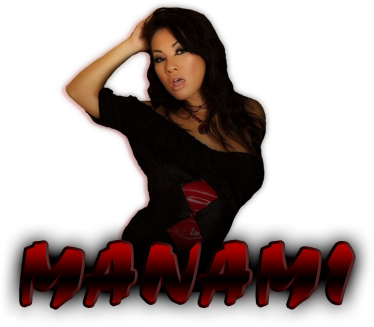Post by Mr. Smith on Feb 5, 2011 14:48:26 GMT -5
Some of you don't know this, some do as I said in when I first came around, but I was a co-admin to a text based e-fed that recently shut down. As such, I said that I would be willing to help anyone in improving their roleplaying. I've been able to successfully convert my RP style to this type of e-fed, but for some people it can be a little tricky. So, if I may, I'd like to give a few tips. I'll try not to make this sound like a lecture, and I'm not a "know it all" type. I'm just sharing my experience. Okay, here goes.
The subject that's most important to me is "Investment", because it goes three ways. You have your own investment in the character (the handler), then there's the character itself, and finally you have the reader's. It's important to have all of these in mind when you roleplay, because they both can make or break your overall e-fedding experience.
Handler Investment
I'll start with the handler perspective. The first and most important thing to do with a character you've decided to go with in terms of investment is to not invest too much into this character. I've seen it plenty of times, and I'm sure some of you have yourselves, of a handler who takes everything so seriously, that if you so much as mispell a word (sometimes you might forget to spell check), they will try to take a jab at you for it. Or if they lose a match, they cry "screwjob".
When you put too much of "yourself" into your character, it's almost automatic that it's going to show when you're not roleplaying as when you are, and that my friends is an instant turn-off to most people. Nobody wants to deal with a character who's handler is a egomaniac, a crybaby, or a douchebag. It just doesn't work that way. I'm not going to get too much into detail with that, but I'll sum it up like this. You aren't your character, you're character isn't you. So long as you keep those lines drawn in the sand, then you'll do just fine.
Character Investment
I've done my homework, reading up on older posts here to get a flavor of the fed's history, and while there were some interesting characters here, they're not who I'd actually consider "characters" at all. That's the second aspect of investing, the actual "avatar" of your character, and what you do with them. Some people are fine with portraying their characters as if they were in an actual wrestling federation. That's all fine and dandy, but a lot of people forget that pro wrestlers are first and foremost "entertainers" and then "athletes", letting the athletic end of things take precedent over the entertainment factor.
There are exceptions of course, and I'll give mention to one name here-Magnus Von Schwartz-who's successfully been able to use the athletic element in an entertaining way. Most other people who I've read do this though (or did, past tense as I assume they've moved on) had relegated themselves to just the basic back & forth trash talking. Now, how many times do you actually see this happen in a WWE or TNA program? Not much. Yes, there IS trash talking, but it's all in the context of some other event or happening going on, not simply "who's the better man". That's not a story being told, it's just two guys standing in a ring arguing with each other, which isn't entertaining at all. Leave the trash talking to the Jets...you see where it got them in the end.
Read this, those who may need direction, and embed it into your minds...Storytelling is the most important thing in roleplaying.
You don't need an emotionally deep character to be able to tell a story. You don't even need a character with a rich history, as I've seen many here actually do have, which is a bonus. But for those who don't, all you need is a story to tell and someone to tell it with, and then you need to coordinate how this story is going to be told. Winners, losers, everything...keeping in mind that everything should build to a good climax that's either going to close the book in a beneficial way for all characters involved, or open up a chapter down the road where, if you're really clicking, things will be done completely differently from the first time.
You have to come to the understanding that one way another, you alone are not building your character into who or what he/she is. It is a collective effort between you and the people you work with, and you have to be sure you're doing it the right way.
Reader Investment
Lastly, I'll go into the reader aspect of it. You have to take into account the reader of your roleplay. Have to. Have to. If you're just doing this saying "I'm having fun, so that's all that matters", you're already failing. What you do with your character has to be as entertaining for someone else reading it as it is for you, and I'll tell you why...it builds up your "name". This applies a lot in text feds, but it does in a place like here as well.
In text-feds, aside from your bios and maybe a picture of a character base in your sig, all the reader has on your character is his name. I was an interesting case because I didn't use a character banner for mine. I gave description yes, but I let the reader paint their own picture of how "Mr. Integrity" looked. Just on the name alone, most were at least intrigued by the character. Now, it can be a clever one like that makes a person say "that's a cool name, let me see what he's about", but then they see this one-dimensional character and think to themselves "what a waste. I though he/she would be good". You just lost audience there.
Readership is an important aspect because people have to read roleplays in order to witness any development in character, story, or the e-fed as whole, so you have to think to yourself in terms of your reader, and I'll use myself as example, "when someone sees the name Mr. Smith pop up on the board, what are they thinking?" You have to give them a reason to be interested in what your character is saying or doing. I've had people in my old fed I really didn't give two licks about, and others that I refreshed every five minutes to see if they were posting some new material up, because they entertain me. Their work reflects the fact that they want to create something interesting as oppose to just "being there". It shows.
Again, this is not to be taken as a "be all, end all" tutorial. I've found for myself lots of success though taking these three things into consideration, as have many of the people I've worked with in the past. It all applies here just as it would in a text-fed. Maybe someone who doesn't have much to go on might read this and have a little clearer perspective on what they should be trying or doing or not doing. That's who this is aimed at.
I'm John Smith, and I approve this message. Isn't my handler just awesome? I thought him everything he knows. ;D
The subject that's most important to me is "Investment", because it goes three ways. You have your own investment in the character (the handler), then there's the character itself, and finally you have the reader's. It's important to have all of these in mind when you roleplay, because they both can make or break your overall e-fedding experience.
Handler Investment
I'll start with the handler perspective. The first and most important thing to do with a character you've decided to go with in terms of investment is to not invest too much into this character. I've seen it plenty of times, and I'm sure some of you have yourselves, of a handler who takes everything so seriously, that if you so much as mispell a word (sometimes you might forget to spell check), they will try to take a jab at you for it. Or if they lose a match, they cry "screwjob".
When you put too much of "yourself" into your character, it's almost automatic that it's going to show when you're not roleplaying as when you are, and that my friends is an instant turn-off to most people. Nobody wants to deal with a character who's handler is a egomaniac, a crybaby, or a douchebag. It just doesn't work that way. I'm not going to get too much into detail with that, but I'll sum it up like this. You aren't your character, you're character isn't you. So long as you keep those lines drawn in the sand, then you'll do just fine.
Character Investment
I've done my homework, reading up on older posts here to get a flavor of the fed's history, and while there were some interesting characters here, they're not who I'd actually consider "characters" at all. That's the second aspect of investing, the actual "avatar" of your character, and what you do with them. Some people are fine with portraying their characters as if they were in an actual wrestling federation. That's all fine and dandy, but a lot of people forget that pro wrestlers are first and foremost "entertainers" and then "athletes", letting the athletic end of things take precedent over the entertainment factor.
There are exceptions of course, and I'll give mention to one name here-Magnus Von Schwartz-who's successfully been able to use the athletic element in an entertaining way. Most other people who I've read do this though (or did, past tense as I assume they've moved on) had relegated themselves to just the basic back & forth trash talking. Now, how many times do you actually see this happen in a WWE or TNA program? Not much. Yes, there IS trash talking, but it's all in the context of some other event or happening going on, not simply "who's the better man". That's not a story being told, it's just two guys standing in a ring arguing with each other, which isn't entertaining at all. Leave the trash talking to the Jets...you see where it got them in the end.
Read this, those who may need direction, and embed it into your minds...Storytelling is the most important thing in roleplaying.
You don't need an emotionally deep character to be able to tell a story. You don't even need a character with a rich history, as I've seen many here actually do have, which is a bonus. But for those who don't, all you need is a story to tell and someone to tell it with, and then you need to coordinate how this story is going to be told. Winners, losers, everything...keeping in mind that everything should build to a good climax that's either going to close the book in a beneficial way for all characters involved, or open up a chapter down the road where, if you're really clicking, things will be done completely differently from the first time.
You have to come to the understanding that one way another, you alone are not building your character into who or what he/she is. It is a collective effort between you and the people you work with, and you have to be sure you're doing it the right way.
Reader Investment
Lastly, I'll go into the reader aspect of it. You have to take into account the reader of your roleplay. Have to. Have to. If you're just doing this saying "I'm having fun, so that's all that matters", you're already failing. What you do with your character has to be as entertaining for someone else reading it as it is for you, and I'll tell you why...it builds up your "name". This applies a lot in text feds, but it does in a place like here as well.
In text-feds, aside from your bios and maybe a picture of a character base in your sig, all the reader has on your character is his name. I was an interesting case because I didn't use a character banner for mine. I gave description yes, but I let the reader paint their own picture of how "Mr. Integrity" looked. Just on the name alone, most were at least intrigued by the character. Now, it can be a clever one like that makes a person say "that's a cool name, let me see what he's about", but then they see this one-dimensional character and think to themselves "what a waste. I though he/she would be good". You just lost audience there.
Readership is an important aspect because people have to read roleplays in order to witness any development in character, story, or the e-fed as whole, so you have to think to yourself in terms of your reader, and I'll use myself as example, "when someone sees the name Mr. Smith pop up on the board, what are they thinking?" You have to give them a reason to be interested in what your character is saying or doing. I've had people in my old fed I really didn't give two licks about, and others that I refreshed every five minutes to see if they were posting some new material up, because they entertain me. Their work reflects the fact that they want to create something interesting as oppose to just "being there". It shows.
Again, this is not to be taken as a "be all, end all" tutorial. I've found for myself lots of success though taking these three things into consideration, as have many of the people I've worked with in the past. It all applies here just as it would in a text-fed. Maybe someone who doesn't have much to go on might read this and have a little clearer perspective on what they should be trying or doing or not doing. That's who this is aimed at.

I'm John Smith, and I approve this message. Isn't my handler just awesome? I thought him everything he knows. ;D













